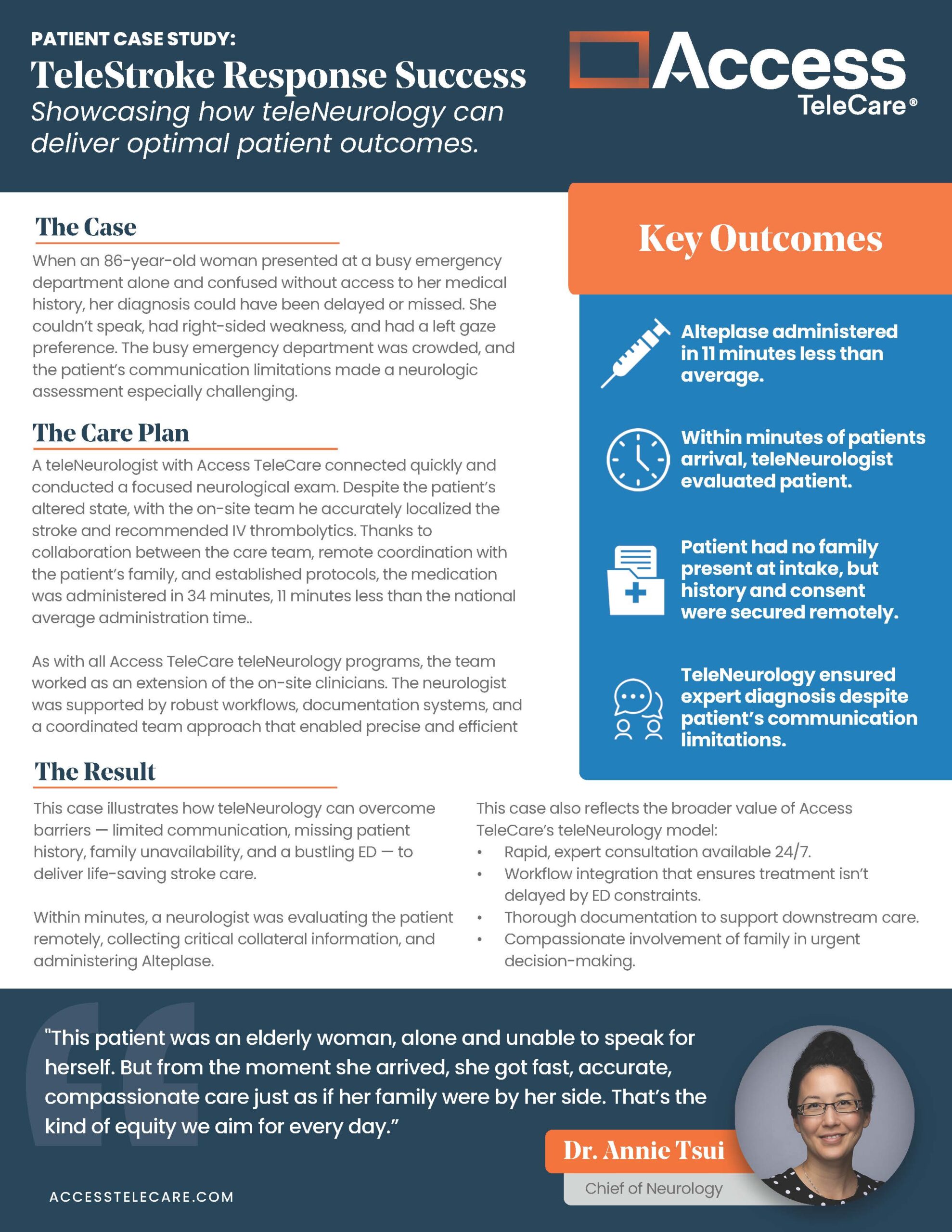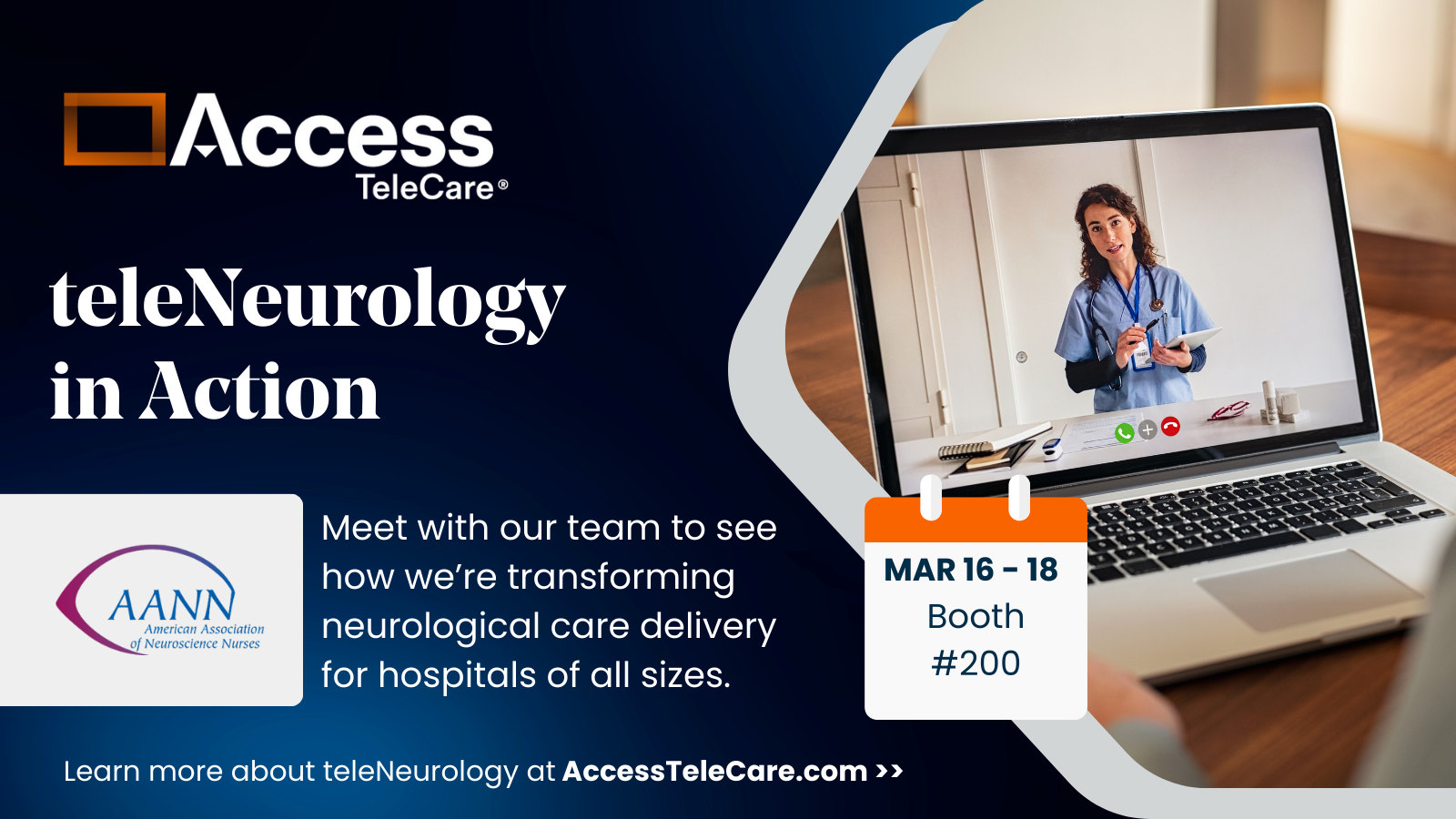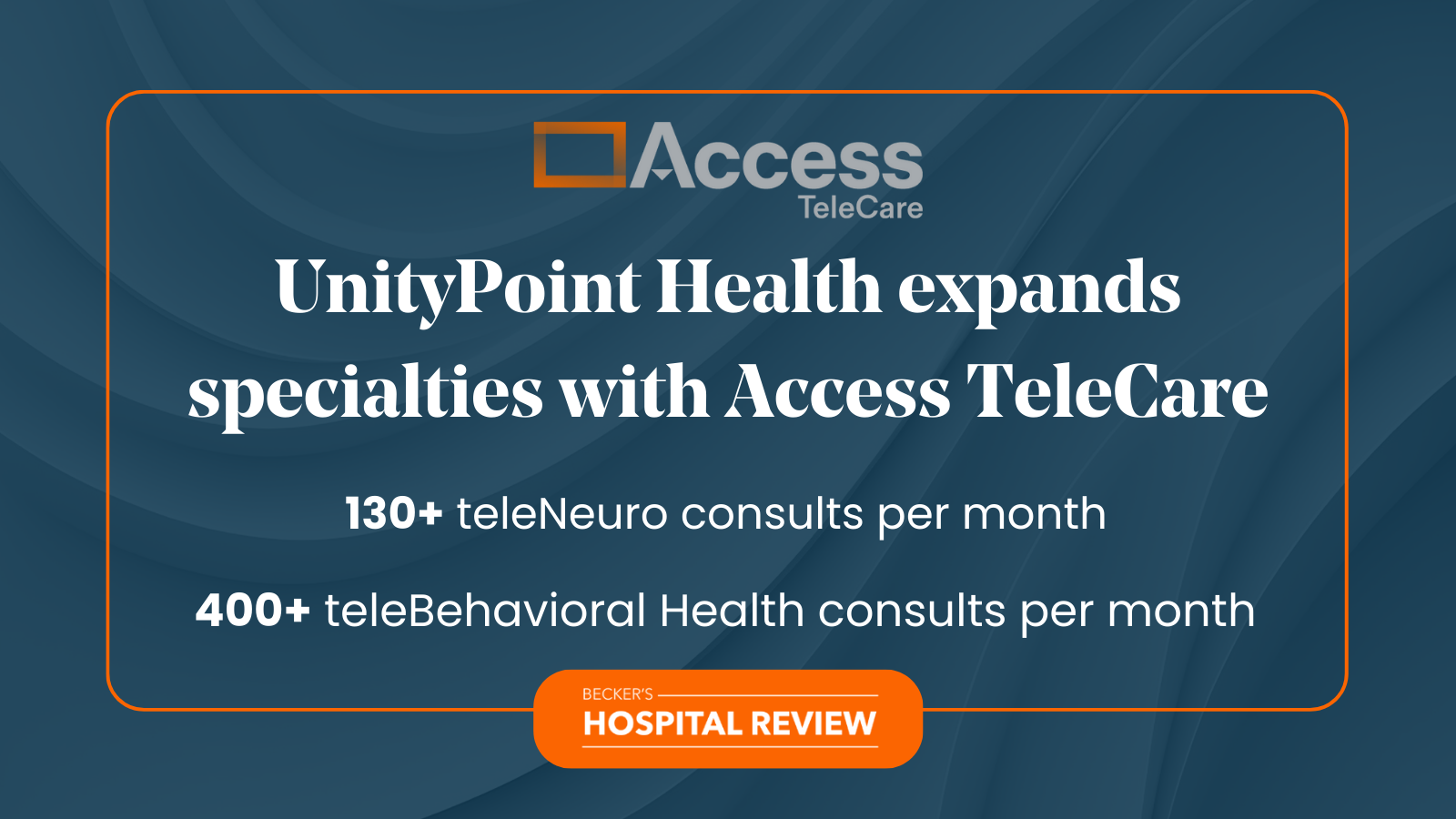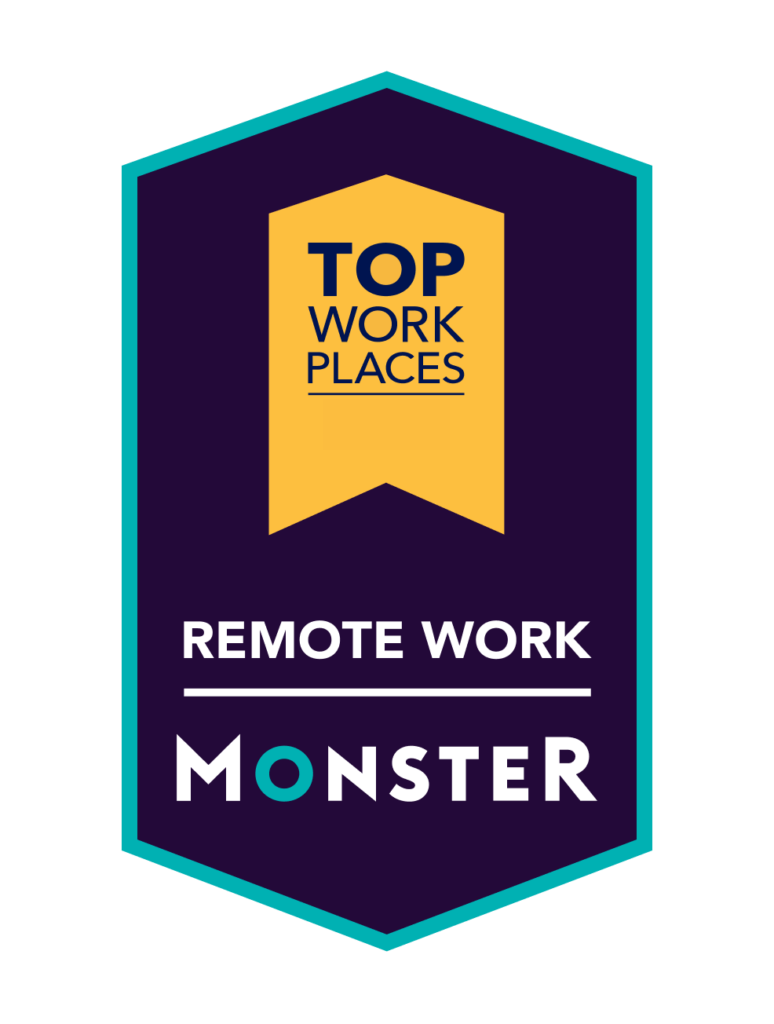What Happens When TeleNeurology Works
Access TeleCare Patient Case Study
The Case
When an 86-year-old woman presented at a busy emergency department alone and confused without access to her medical history, her diagnosis could have been delayed or missed. She couldn’t speak, had right-sided weakness, and had a left gaze preference. The busy emergency department was crowded, and the patient’s communication limitations made a neurologic assessment especially challenging.
The Care Plan
A teleNeurologist with Access TeleCare connected quickly and conducted a focused neurological exam. Despite the patient’s altered state, with the on-site team he accurately localized the stroke and recommended IV thrombolytics. Thanks to collaboration between the care team, remote coordination with the patient’s family, and established protocols, the medication was administered in 34 minutes, 11 minutes less than the national average administration time.
As with all Access TeleCare teleNeurology programs, the team worked as an extension of the on-site clinicians. The neurologist was supported by robust workflows, documentation systems, and a coordinated team approach that enabled precise and efficient care.
“This patient was an elderly woman, alone and unable to speak for herself. But from the moment she arrived, she got fast, accurate, compassionate care just as if her family were by her side. That’s the kind of equity we aim for every day.”
– Dr. Annie Tsui, Chief of Neurology
The Result
This case illustrates how teleNeurology can overcome barriers — limited communication, missing patient history, family unavailability, and a bustling ED — to deliver life-saving stroke care. Within minutes, a neurologist was evaluating the patient remotely, collecting critical collateral information, and administering Alteplase.
This case also reflects the broader value of Access TeleCare’s teleNeurology model:
-
Rapid, expert consultation available 24/7
-
Workflow integration that ensures treatment isn’t delayed by ED constraints
-
Thorough documentation to support downstream care
-
Compassionate involvement of family in urgent decision-making
TeleNeurology Articles
Access TeleCare Highlights Advances in TeleNeurology at AANN 2025
From stroke to seizure management, we’re transforming delivery of time-critical [...]
Virtual neurology and behavioral health at UnityPoint Health: a success story powered by Access TeleCare
When UnityPoint Health made expanding access to specialty care [...]
Acute specialty telemedicine: Hospitals’ strategic solution for treating high-acuity patients and improving financial performance
The following is an excerpt from our recent piece in [...]








